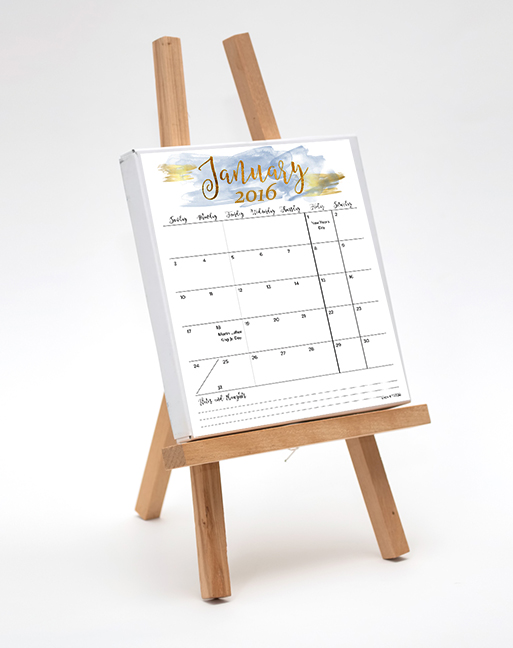5 Steps to Reasonable Goal Setting

Self-Employment Goal Setting
Years ago I would end the year by taking stock in what I had accomplished during the year. I would rejoice in my accomplishments but mostly regret that another year had slipped by me and I hadn’t achieved some of the goals and milestones I had wanted to achieve the previous year. I realized that it was my own fault. I had made a list but I hadn’t made a serious positive-action plan to accomplish even one of those goals. That’s when I started buying a Weekly Calendar so that I could map out each mile of my goals.
Here is what I learned:

Resolutions
Do you set goals or resolutions for yourself on New Years Day each year?
Goal Hard to Track
1. Don’t make generic or general goals that are hard to track.
I used to put on my list things like “Paint more” or “Wright more articles/blogs” or “Loose Weight.” This didn’t work because at the end of the year I couldn’t tell if I had met that goal or did just the same as the previous year. To solve this problem I had to become more specific with my goal setting, like “Paint 12 new paintings this year” or “write 100 articles this year,” which helped because I could then set the smaller goals of one per month or so on. Also instead of “loose weight” I set a specific goal of “Loose 12 or 24 pounds.” Loosing then, one or two pounds per month was easier for me to track to see if I was keeping my resolutions. In the same way, if your goal is something like “spend more time with the family” you could be more specific by making a weekend game night or a one-hour family meeting once a week.

Small Goals
2. Start small with reasonable goals.
The first time I set these goals I wanted to paint 50 paintings a year. The problem was that it was just too unreasonable for me to carve out time from my family and job to put that much time into my favorite thing: painting. The result was that I ended the year nowhere near my goal and woefully disappointed in myself. I realized that if I wanted to be sensible and kind to myself both, I was going to have to set a more attainable goal. You may not want to paint every day like I do. You may want to set a goal of exercising every day or something like that. Be kind to yourself and set that goal to a more practical goal of exercising 3 times a week 15 minutes to start. You can always increase it from there.


Set Up Accountability
I found that if I mark my calendar up with goals I can still let myself slide and then fail in my task. However, I do little things to make myself more accountable. I have a good friend in my sister. We talk once a week and I use her as my accountability buddy. She is the best. She always asks how I’m doing and how I feel about myself for completing or not completing a goal and I do the same for her. This check-in with my sister is so good for my morale. I don’t feel like I can begin a new week without it. When she was far away we Skyped and even now that she lives nearby, we still Skype every week.
Also, to reinforce that, I have a pop-up calendar on my computer that regularly pops up with the goal of the day. If I leave that goal there, it is staring at me all day and reminds me of not having done that task.
In my case, I get so caught up in school (Master’s program work), family, painting, writing and other fun tasks that my home suffers. So I created a little reminder on my calendar. I divided up certain chores to work on one a day per week. Monday is dishes day when I load and unload the dishwasher; Tuesday is bathroom day when I give the bowl and floors a swipe and flush; Wednesday is dusting day; Thursday is laundry day; Friday is vacuum day; Saturday is storage day when we box up things to take to storage or just throw them away. With this schedule, I am much better able to keep the house under control and don’t have to panic when people come over. I have been chronically deplorable at housework and this schedule helps me, especially when I have reminders pop up in front of me on the computer. I can do the same thing with other goals allowing the computer to nag me into submission on things I think are important.

Short-Term Goals
3. Short-term goals are the key to success.
All this success is only possible when the year's goals are divided up into short goals for each month and then each week. The first year after discovering that I should divide up the New Year’s resolutions to spread throughout the year, and I looked back realizing I had actually kept and exceeded most of my goals, I was surprised and amazed. It seemed so simple and yet so profound, I couldn’t figure out why I’d never thought of it before.
I started by dividing the goals into 12 monthly sized milestones that I would have to pass to get to the desired destination. That done, I divided each of those months into 4 weekly destinations, to deliver me to the monthly goal. Since each of these became much more manageable bite-sized goals, I was more able to accomplish or at least get closer to the end-goals.
Most computers come with a calendar program that will send you alerts each day when some deadline is approaching. If your computer doesn’t have one, an app should be fairly easy to find for your phone or tablet that will do the same thing. I can’t tell you how valuable this is and how well worth your time to set up. My calendar cycles the weekly goal automatically, so that once I typed it in, I didn’t have to do it again. The same with monthly goals.

Rewards
4. Rewards help you keep on schedule.
In my case finishing paintings are their own rewards but when it comes to goals such as weight loose and chores that are distasteful, a reward for achievements is helpful. One of my favorite rewards is entering an art show competition with my newer paintings. Whether I win or loose, just getting into the show and seeing what others are doing personally and professionally is a joy. You may find more tasty rewards more appealing like chocolates or a latte. It takes all kinds of things to keep us going.
Expect Disappointment
5. Expect periods of disappointment.
No one is perfect. Who can keep a perfect schedule 24/7? No one I know anyway. The key is not to quit just because situations and unforeseen complications send you off your scheduled goals. It’s best to chalk it up to normal and typical for all humans and go back to the schedule. One of my goals is to read through the Bible each year. I have a schedule that maps out the entire Bible day by day. However, things come up from time to time and occasionally I miss a day or two. No need to ditch the whole goal for missing one day. I can usually catch up by reading two day’s chapters in one but if I missed more than one day in a row, the “catch up” seems so insurmountable that I want to throw in the towel. Instead, I allow myself to skip those lost days and get back onto the scheduled reading. Better to miss one or two days than the whole year’s worth of reading. When the end of the year comes and I can say I read through the Bible (most of it) for yet another year, it is a very good feeling. Give yourself a break. Maybe one or two “get out of jail free” cards are a good idea for unexpected circumstances. Everyone has them.









